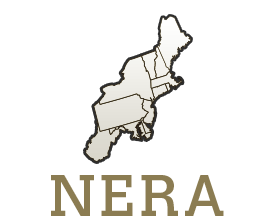
NEC67: Soil Testing
(Multistate Research Coordinating Committee and Information Exchange Group)
Status: Inactive/Terminating
NEC67: Soil Testing
Duration: 07/01/1986 to 09/30/1991
Administrative Advisor(s):
NIFA Reps:
Non-Technical Summary
Statement of Issues and Justification
The Northeast Coordinating Committee on Soil Testing (NEC-67) was created by the Northeast Experiment Station Directors in 1987 and was formally extended in 1990, 1995, and again in 2000. This committee provides a forum for the free exchange of information, expertise, and technological innovation in the field of soil fertility, soil testing, and nutrient management of crops in the Northeast geographic region of the U.S. Similar committees in other geographic regions have existed for many years and have been quite successful in standardizing soil testing methodology, interpretations, and recommendations and in solving other common analytical and nutrient management problems. NEC-67 has met once each year since 1987 and has met twice (1996 and 2000) in joint session with the North Central (NCR-13) and Southeast (SERA-6) Regional Soil Testing Committees. The Northeast geographic region is best characterized by physiographic diversity in soils. A broad range of climate, crops, and crop management systems also exists. This makes the Northeast region rather unique, compared with regions covered by similar work groups. The North Central States, for instance, are relatively uniform in soils, crop production, and traditional soil testing methodology. By way of contrast, there were at least seven different nutrient extraction methods in common use in the Northeast prior to 1987. This has made the complete standardization of soil testing in the Northeast a much more daunting task than in other regions. NEC-67 has approached this process by forming a consensus at the philosophical level where possible, with due regard for legitimate state to state differences in methodology which address the inherent diversity of this region. The Northeast region is also unique in its relatively high population density. Environmentally responsible management of plant nutrients and regulated metals is a very important political issue in this region. Also, homeowner samples make up a higher proportion of soil testing samples in the Northeast than in many other regions of the country. We have a unique opportunity, in helping homeowners with their soil and garden crop management problems, to elevate awareness of crop production problems at all levels. Soil testing methods, interpretations, and recommendations in the Northeast must take these factors into account.�
Objectives
-
To improve fertilizer recommendations based on soil test results and other soil and management factors.
-
To provide a forum for responding to new challenges in soil testing technology and use.
-
To improve the methods and operations of soil testing laboratories in the region.
-
To improve Extension efforts in soil testing.
-
�
Procedures and Activities
Expected Outcomes and Impacts
- To improve fertilizer recommendations based on soil test results and other soil and management factors:
- To provide a forum for responding to new challenges in soil testing technology and use.
- To improve the methods and operations of soil testing laboratories in the region.
- To improve Extension efforts in soil testing.
- �
Projected Participation
View Appendix E: ParticipationEducational Plan
Organization/Governance
Literature Cited
�